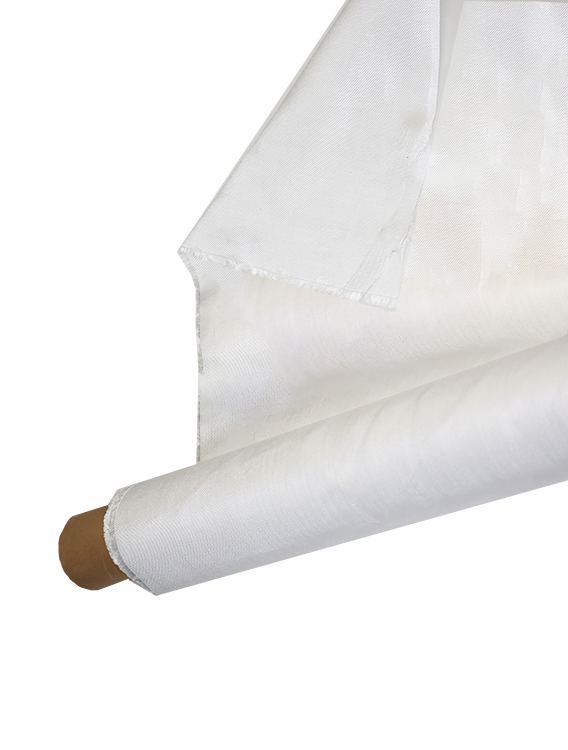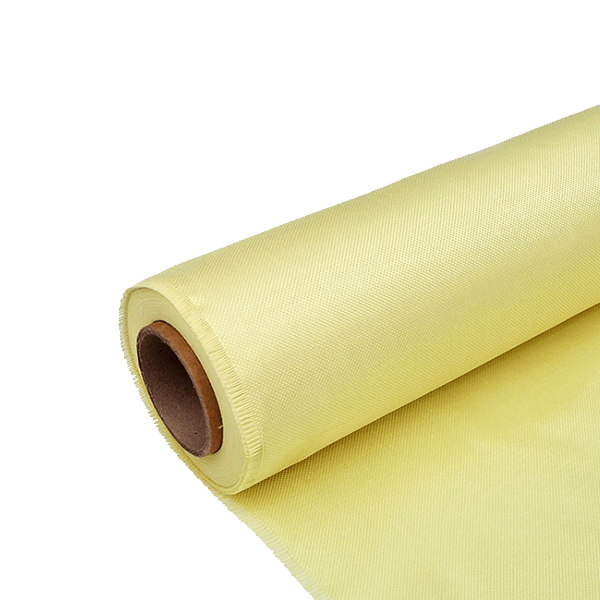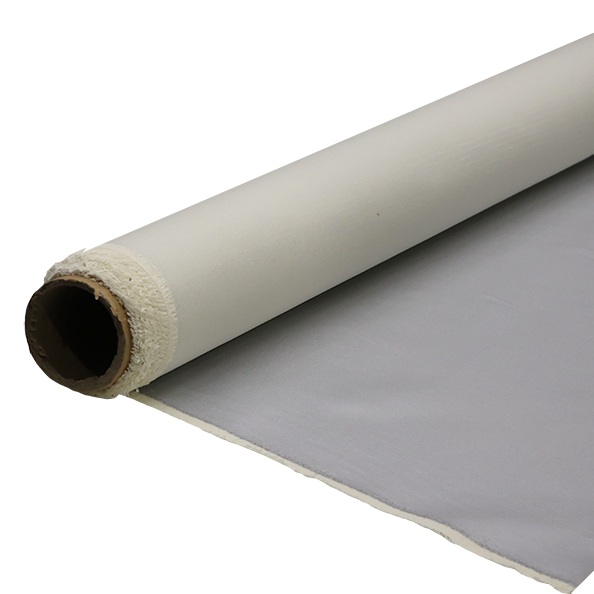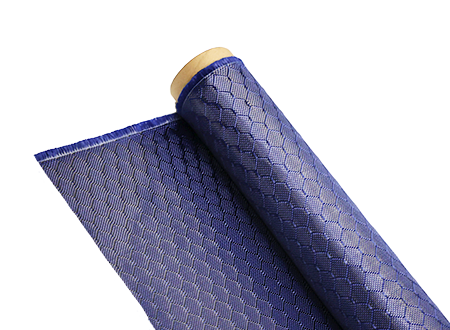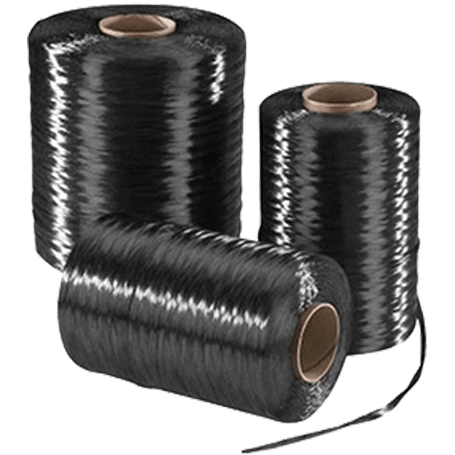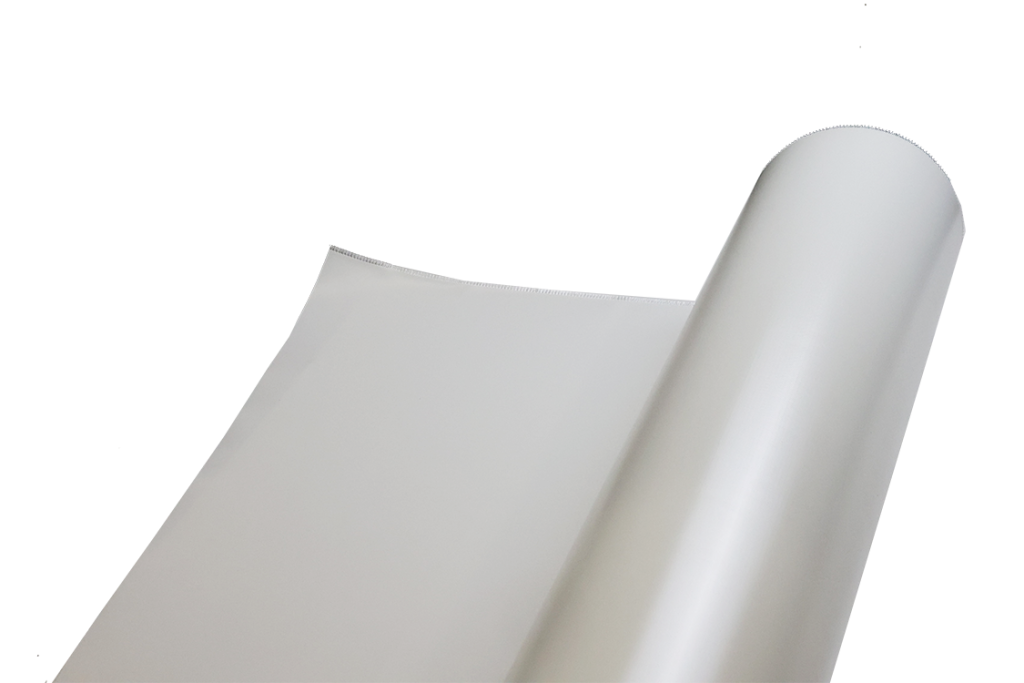Carbon Fiber vs Titanium: Strength & Weight Compared
-
 Your Composites Expert Carbon Fiber Materials&Products
Your Composites Expert Carbon Fiber Materials&Products -
-1.png?width=686&height=617) Your Composites Expert Aramid Fiber Materials&Products
Your Composites Expert Aramid Fiber Materials&Products -
 Your Composites Expert UHMWPE Materials&Products
Your Composites Expert UHMWPE Materials&Products -
 Your Composites Expert Fiberglass Materials&Products
Your Composites Expert Fiberglass Materials&Products -
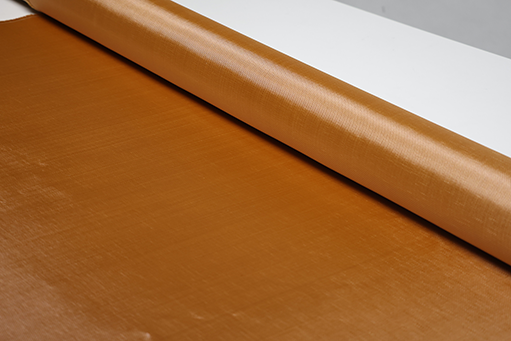 Your Composites ExpertPBO Materials&Products
Your Composites ExpertPBO Materials&Products -
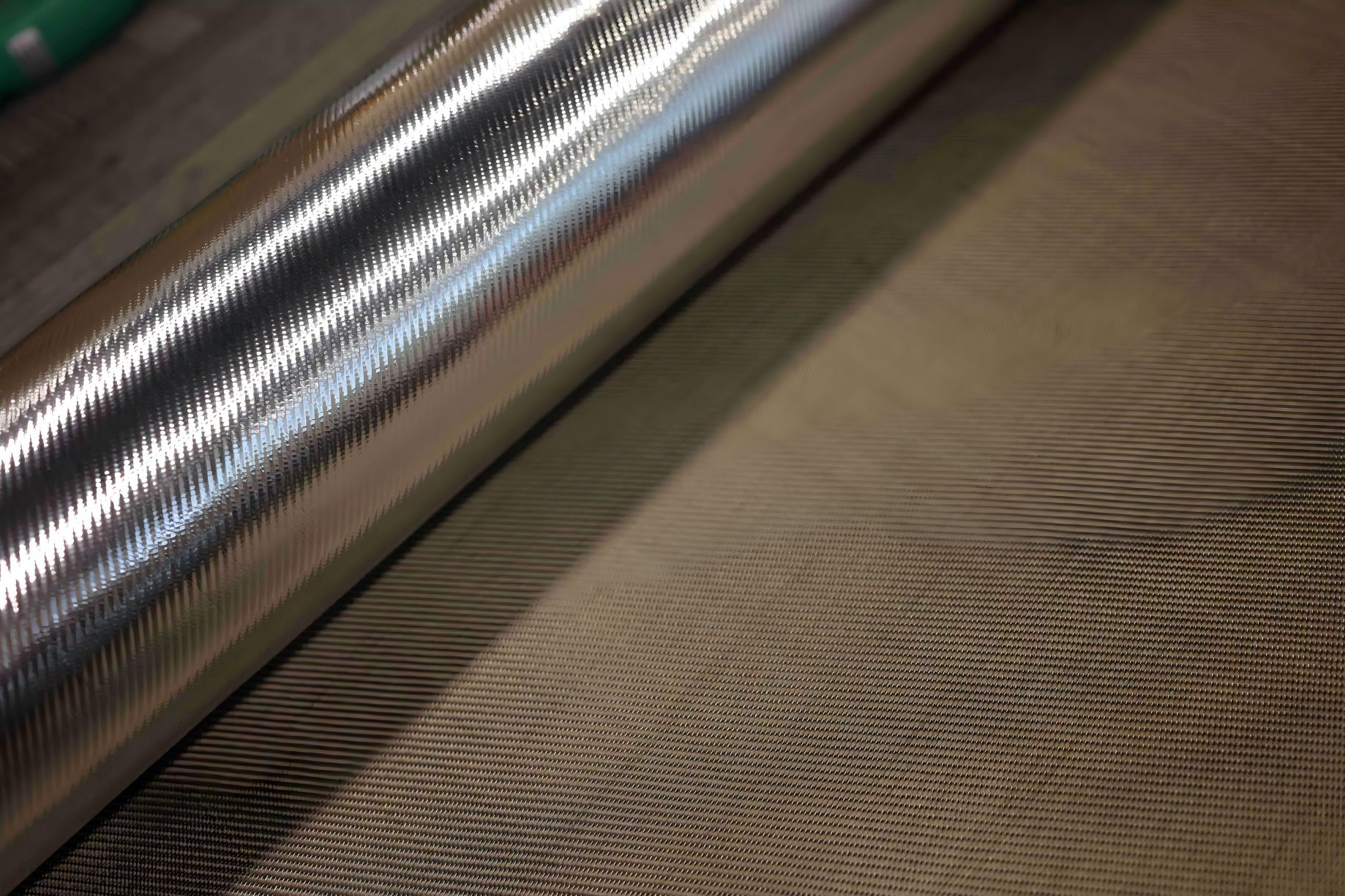 Your Composites Expert Basalt Materials&Products
Your Composites Expert Basalt Materials&Products
Carbon fiber and titanium are two materials that are commonly used in various industries due to their superior strength and lightweight properties. When it comes to high-performance applications, selecting the appropriate material is crucial for achieving optimal results. In this article, we will explore and compare carbon fiber and titanium in terms of their strength and weight, giving you a better understanding of their performance capabilities and ideal applications.
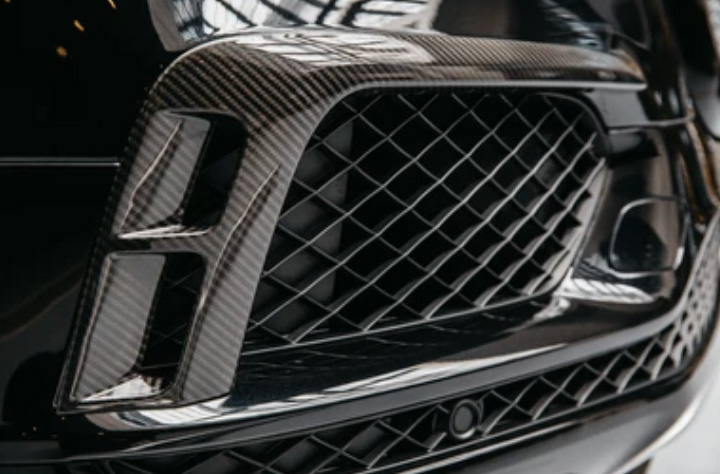
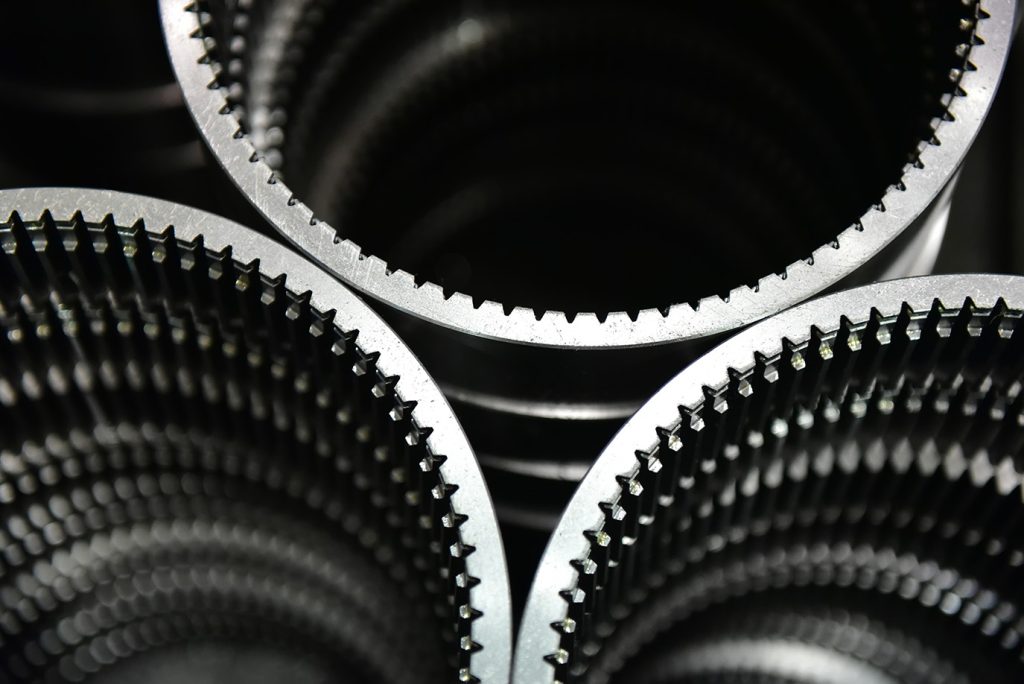
Key Takeaways:
- Carbon fiber and titanium are widely used materials due to their superior strength and lightweight properties
- Choosing the appropriate material is crucial for high-performance applications
- In this article, we will compare carbon fiber and titanium in terms of their strength and weight
- Understanding the performance capabilities of both materials will help you make informed decisions when selecting a suitable material
- The choice between carbon fiber and titanium ultimately depends on specific application requirements and design constraints
Understanding Carbon Fiber
Welcome to our exploration of carbon fiber, one of the most popular materials in modern engineering. Carbon fiber is a composite material made of thin, strong crystalline filaments of carbon. The material is known for its high strength-to-weight ratio, allowing carbon fiber to be both light and robust.
Carbon fiber is created using a complex manufacturing process that involves weaving together the carbon filaments into a cloth-like material. This material is then layered and compressed, creating a moldable material that can be used in various industries. Its maneuverability and design flexibility make it a favorite in the automotive, aerospace, and sporting goods industries. Additionally, its impressive strength and stiffness make it popular for structural components in building and construction.
The properties of carbon fiber differ from traditional materials such as metals and plastics. For example, carbon fiber is highly anisotropic, meaning it has different strengths and failure modes when loaded along different axes. This property requires designers and engineers to carefully consider the direction of forces applied to carbon fiber materials when designing a project.
One of the most significant advantages of carbon fiber over other materials is its high strength-to-weight ratio. This property allows carbon fiber materials to be both lightweight and strong. Additionally, carbon fiber can withstand high temperatures, making it useful in high-temperature applications like aerospace and motorsports. Its low thermal expansion also makes it a favorite in industries where dimensional stability is essential.
Overall, carbon fiber's combination of strength, light weight, and design flexibility make it an excellent choice for applications where these properties are critical. At ICT Fibers, our team has extensive experience working with carbon fiber composites. To find out more about how our carbon fiber composites can improve your project, contact us at info@ictfibers.com or visit our official website at www.ictfibers.com.
Titanium: Strong and Lightweight
When it comes to high-performance materials, titanium is among the best. This durable metal stands out for its strength, lightweight nature, and unique properties. One of the most significant advantages of titanium is its exceptional corrosion resistance. Titanium is highly resistant to most forms of surface attack, which makes it ideal for use in marine, aerospace, and other harsh environments where metals are subject to corrosion. Additionally, titanium has a high melting point, making it suitable for high-temperature applications.
The properties of titanium also make it a preferred choice in applications where weight reduction is critical. Due to its excellent strength-to-weight ratio, titanium is significantly lighter than steel, making it perfect for a wide range of applications, including aerospace, automotive, sports equipment, and medical devices.
Overall, the unique properties and advantages of titanium make it a popular material for manufacturers across many industries. At ICT Fibers, we understand the importance of offering the best materials to our customers. That's why we provide high-quality titanium at competitive prices. Contact us today at info@ictfibers.com or visit our official website www.ictfibers.com to learn more about our range of titanium products.
Strength Comparison: Carbon Fiber vs Titanium
When it comes to strength comparison, carbon fiber and titanium are both highly regarded for their durability and resilience. Carbon fiber is a composite material made of thin fibers that are tightly woven together, resulting in an extremely strong and lightweight structure. On the other hand, titanium is a metal known for its strength, durability, and corrosion resistance.
Carbon fiber has a tensile strength of around 500 ksi, while titanium has a tensile strength ranging from 240 to 520 ksi, depending on the grade. Although titanium has a higher strength-to-weight ratio than most metals, it is not as lightweight as carbon fiber.
When subjected to specific forces and stresses, carbon fiber and titanium perform differently. Carbon fiber is known for its exceptional resistance to bending and compression forces, making it an ideal material for applications such as aircraft components, sporting goods equipment, and high-performance automotive parts. In contrast, titanium has a greater resistance to fatigue and crack propagation, which makes it a popular material for use in the medical industry, specifically in prosthetic implants and surgical instruments.
Carbon Fiber vs Titanium Strength: Applications
| Applications | Carbon Fiber | Titanium |
|---|---|---|
| Aerospace | Wings, fuselage, landing gears | Structural components, jet engines |
| Automotive | Hoods, fenders, body panels | Drive shafts, exhaust systems |
| Sports Equipment | Skis, snowboards, fishing rods | Bicycles, golf clubs, tennis rackets |
| Medical Devices | Orthopedic braces, wheelchairs, prosthetics | Surgical instruments, implants |
As seen in the table above, both materials excel in particular applications. Carbon fiber's strength and lightweight make it the go-to choice for aircraft components, while titanium's high tensile strength and corrosion resistance make it ideal for use in the medical field. However, carbon fiber is not ideal for extreme temperature environments, while titanium is not suitable for applications that require high electrical conductivity.
When it comes to choosing between carbon fiber and titanium for a particular application, understanding the unique characteristics of each material and their performance under specific forces and stresses is crucial. The right material selection can lead to significant improvements in performance, durability, and cost-effectiveness.
At ICT Fibers, we specialize in providing high-quality carbon fiber products for various industries, and our team of experts can offer guidance and support in material selection and design. Contact us today at info@ictfibers.com or visit our website at www.ictfibers.com to learn more.
Weight Considerations: Carbon Fiber vs Titanium
When deciding on a material for a project, weight is an essential factor to consider. Carbon fiber and titanium are two materials that are both known for their lightweight properties. Carbon fiber is renowned for its high strength-to-weight ratio, while titanium is celebrated for its overall strength and low density, which makes it an ideal option for high-stress applications.
To give a better idea of how these materials compare in terms of weight, let's take a closer look:
| Material | Density (g/cm3) |
|---|---|
| Carbon Fiber | 1.75-1.8 |
| Titanium | 4.5 |
From the table above, we can see that carbon fiber is significantly lighter than titanium, weighing in at around 2.5 times less. This makes carbon fiber an excellent choice for projects that require a lightweight material without sacrificing strength or durability. However, it's important to note that carbon fiber is not an ideal choice for applications that require high-temperature resistance or electrical conductivity.
On the other hand, titanium's higher density may make it less practical for applications that require the lightest material possible. However, its overall strength and other properties such as corrosion resistance and biocompatibility make it an excellent choice for aerospace, medical, and sports equipment industries, where safety and reliability are critical.
In conclusion, when it comes to deciding between carbon fiber and titanium, your specific project requirements will dictate which material is the best choice. At IMPACT, we offer a wide range of carbon fiber and titanium products to suit your needs. Contact us at info@ictfibers.com or visit our website www.ictfibers.com for more information.
Durability and Longevity: Carbon Fiber vs Titanium
When choosing between materials, durability is a major factor to consider. Both carbon fiber and titanium are known for being strong and lightweight, but how do they hold up over time?
Carbon fiber: Due to its composition and manufacturing process, carbon fiber has excellent resistance to wear and fatigue. It can withstand repeated stresses and vibrations without losing its strength or shape. Carbon fiber is also corrosion-resistant and does not rust or deteriorate in harsh environments. However, it may be susceptible to UV damage if left exposed to sunlight for extended periods.
Titanium: Similarly, titanium is resistant to wear, corrosion, and fatigue. It does not rust or tarnish, and can withstand extreme temperatures and pressures. However, titanium can be prone to developing surface scratches and grooves, which can impact its appearance and potentially compromise its integrity if not properly addressed.
In terms of longevity, both carbon fiber and titanium have been shown to have a long lifespan. However, each material may require different maintenance and care in order to maximize its performance and durability.
Maintenance Requirements:
Carbon fiber: To maintain its strength and appearance, carbon fiber should be regularly cleaned with a mild detergent and water. Harsh chemicals or abrasives can damage the material and compromise its structural integrity. In addition, carbon fiber should be kept out of direct sunlight and extreme temperatures to prevent UV damage or warping.
Titanium: Titanium requires minimal maintenance, but scratches or grooves on its surface should be polished out to prevent further damage. It can also be cleaned with a mild detergent and warm water. However, care should be taken not to expose titanium to chlorine or other chemicals, as this can cause discoloration and corrosion.
| Carbon Fiber | Titanium | |
|---|---|---|
| Durability | Excellent resistance to wear and fatigue | Resistant to wear, corrosion, and fatigue |
| Maintenance | Regular cleaning with mild detergent; avoid exposure to harsh chemicals and UV light | Minimal maintenance required; scratches and grooves should be polished out |
Overall, the durability and longevity of carbon fiber and titanium make them attractive materials for a wide range of applications. Their respective maintenance requirements should be considered when selecting the appropriate material for a particular use.
If you're looking for high-quality carbon fiber or titanium products, look no further than ICT Fibers. Contact us at info@ictfibers.com, or visit our official website at www.ictfibers.com to learn more.
Applications of Carbon Fiber vs Titanium
Carbon fiber and titanium are two materials that have gained immense popularity due to their exceptional strength and lightness. Each material has its unique strengths, making them ideal for specific applications across many industries.
Aerospace
The aerospace industry utilizes both carbon fiber and titanium in various applications. Carbon fiber is used for components requiring high strength-to-weight ratio, such as aircraft fuselage components and engine parts. Titanium is used in areas that require high temperature resistance and excellent corrosion resistance, such as landing gear components and turbine engine blades.
Automotive
The automotive industry uses carbon fiber in sports cars and other high-performance vehicles to reduce weight while maintaining strength. Carbon fiber components also enhance the aesthetic appeal of the vehicle. Titanium is used in exhaust systems due to its high temperature resistance and lightness.
Sports Equipment
Both materials are considered lightweight alternatives to traditional metals for many sports equipment applications. Carbon fiber is used in the manufacture of bicycle frames, tennis rackets, and hockey sticks due to its high strength-to-weight ratio. Titanium is commonly used in golf clubs and bicycle parts due to its lightness and strength.
Medical Devices
Carbon fiber and titanium are both utilized in medical devices due to their strength, lightness, and biocompatibility. Carbon fiber is used in prosthetics, bone plates, and surgical instruments. Titanium is used for orthopedic implants, pacemakers, and dental implants.
Comparison Table
| Applications | Carbon Fiber | Titanium |
|---|---|---|
| Aerospace | Fuselage components, engine parts | Landing gear, turbine engine blades |
| Automotive | Vehicle frames, body components | Exhaust systems |
| Sports Equipment | Bicycle frames, tennis rackets, hockey sticks | Golf clubs, bicycle parts |
| Medical Devices | Prosthetics, bone plates, surgical instruments | Orthopedic implants, pacemakers, dental implants |
As seen in the above comparison table, both carbon fiber and titanium are versatile materials that can be used in a wide range of applications. The choice between these materials comes down to specific requirements, such as weight, strength, and durability.
To learn more about using carbon fiber and titanium in your next project, contact us at info@ictfibers.com or visit our official website at www.ictfibers.com.
Advantages and Disadvantages: Carbon Fiber vs Titanium
When choosing a material for specific applications, it’s important to consider the advantages and disadvantages of each option. In this section, we'll explore the benefits and limitations of both carbon fiber and titanium.
Advantages of Carbon Fiber
Carbon fiber is known for its exceptional strength-to-weight ratio, making it ideal for applications where weight is a critical factor, such as aerospace, sports equipment, and automotive industries. It also exhibits excellent corrosion resistance, high stiffness, and dimensional stability. Carbon fiber offers design flexibility, as it can be molded into complex shapes and forms, and can be coated to improve aesthetics or durability.
Disadvantages of Carbon Fiber
The manufacturing complexity of carbon fiber is relatively high in comparison to other materials, resulting in higher production costs. The raw material availability of carbon fiber can also be an issue, particularly for mass production. Additionally, carbon fiber can be brittle and prone to cracking, which can limit its use in high-impact applications.
Advantages of Titanium
Titanium is known for its outstanding strength, low density, and high melting point, making it ideal for applications where strength and weight are critical factors, such as aerospace and biomedical industries. It also exhibits excellent corrosion resistance, particularly in saltwater environments. Titanium can be easily welded and formed into complex shapes, making it a versatile material option.
Disadvantages of Titanium
One of the primary disadvantages of titanium is its high production cost due to the complex manufacturing processes involved. It can also be difficult to machine and shape, resulting in longer lead times. Titanium has a relatively low stiffness compared to other materials, limiting its use in high-stress applications. It is also susceptible to galling, which can cause damage when metal components rub against each other.
Comparison Table: Advantages and Disadvantages of Carbon Fiber vs Titanium
| Carbon Fiber | Titanium | |
|---|---|---|
| Advantages | Exceptional strength-to-weight ratioExcellent corrosion resistanceHigh stiffness and dimensional stabilityDesign flexibility | Outstanding strength and low densityHigh melting pointExcellent corrosion resistanceEasily welded and formed into complex shapes |
| Disadvantages | High manufacturing complexity and costRaw material availability issuesBrittle and prone to cracking | High production costDifficult to machine and shapeLow stiffness compared to other materialsSusceptible to galling |
Overall, both carbon fiber and titanium have unique advantages and disadvantages. The selection of either material depends on specific application requirements, cost considerations, and design constraints.
For more information about carbon fiber and titanium products, please visit our official website www.ictfibers.com or contact us at info@ictfibers.com.
Comparing Properties: Carbon Fiber vs Titanium
When selecting materials for a specific application, properties such as thermal conductivity, electrical conductivity, and chemical resistance are crucial factors to consider. In this section, we'll compare the important properties of carbon fiber and titanium and how they impact material selection for various uses.
| Carbon Fiber | Titanium | |
|---|---|---|
| Density | 1.75 g/cm3 | 4.5 g/cm3 |
| Thermal Conductivity | 1.7 W/mK | 21.9 W/mK |
| Electrical Conductivity | Very low | Moderate |
| Corrosion Resistance | Excellent | Very good |
| Melting Point | 2,400°C | 1,668°C |
| Chemical Resistance | Good for acids, poor for alkalis | Excellent |
Carbon fiber has a lower density and thermal conductivity compared to titanium, making it a suitable material for applications where weight is a major concern. On the other hand, titanium has better electrical conductivity, corrosion resistance, and chemical resistance than carbon fiber, making it a preferred choice for industries such as medical devices and chemical processing plants.
Ultimately, the decision between carbon fiber and titanium depends on the specific properties required for the intended application. At ICT Fibers, we provide high-quality carbon fiber and titanium materials that meet the unique demands of our customers. Contact us at info@ictfibers.com or visit our website at www.ictfibers.com to learn more.
Conclusion
After exploring the various properties and characteristics of carbon fiber and titanium, it's clear that both materials offer unique advantages in terms of strength, weight, and durability.
Carbon fiber stands out for its high strength-to-weight ratio and design flexibility, making it an ideal choice for industries such as aerospace, automotive, and sports equipment. Meanwhile, titanium's exceptional strength, lightweight nature, and corrosion resistance make it a popular choice for applications in medical devices, military equipment, and industrial machinery.
However, the choice between carbon fiber vs titanium ultimately depends on the specific application requirements, cost considerations, and design constraints.
At ICT Fibers, we specialize in the production of high-quality carbon fiber products. If you have any questions about carbon fiber, please feel free to email us at info@ictfibers.com or visit our official website at www.ictfibers.com.
Thank you for reading our comparison of carbon fiber vs titanium. We hope this article has provided valuable insights into these two remarkable materials.
FAQ
How does carbon fiber compare to titanium in terms of strength and weight?
Carbon fiber and titanium have different strengths and weights. Carbon fiber is known for its high strength-to-weight ratio, making it stronger and lighter than titanium. However, titanium is still considered a strong and lightweight material in its own right.
What are the advantages of carbon fiber compared to titanium?
Carbon fiber offers several advantages over titanium. It is lighter, has a higher tensile strength, and is more corrosion-resistant. Additionally, carbon fiber can be molded into complex shapes, providing design flexibility that titanium may not offer.
What are the advantages of titanium compared to carbon fiber?
Titanium has its own set of advantages. It is highly durable, has excellent fatigue resistance, and has a high melting point. Titanium is also more readily available and cost-effective compared to carbon fiber.
What are the disadvantages of carbon fiber compared to titanium?
One of the main disadvantages of carbon fiber is its cost. Carbon fiber can be significantly more expensive than titanium. Additionally, carbon fiber may not be as durable as titanium, as it can be prone to damage from impact or abrasion.
What are the disadvantages of titanium compared to carbon fiber?
Titanium is not as lightweight as carbon fiber, which can be a disadvantage in weight-sensitive applications. Furthermore, titanium is more difficult to manufacture and shape compared to carbon fiber, leading to higher production costs.
What are the common uses of carbon fiber and titanium?
Carbon fiber is widely used in aerospace applications, automotive components, sporting goods such as bicycles and golf clubs, and high-end products like luxury watches and musical instruments. Titanium is commonly found in aerospace structures, medical implants, marine components, and high-performance sports equipment.
How do carbon fiber and titanium compare in terms of durability?
Both carbon fiber and titanium have excellent durability. Carbon fiber is highly resistant to corrosion, while titanium exhibits exceptional fatigue resistance. However, carbon fiber may be more susceptible to impact damage, whereas titanium is more resistant to physical damage.
What are the key properties of carbon fiber and titanium?
Carbon fiber has low density, high tensile strength, high stiffness, and a low thermal expansion coefficient. Titanium, on the other hand, possesses high strength, low density, excellent corrosion resistance, and good biocompatibility.
How do the costs of carbon fiber and titanium compare?
Carbon fiber is generally more expensive than titanium. The high cost of carbon fiber is primarily due to its complex manufacturing process and the raw materials used. Titanium, although cheaper than carbon fiber, is still more costly compared to other common metals like steel or aluminum.
Which material should I choose, carbon fiber, or titanium?
The choice between carbon fiber and titanium depends on the specific requirements of your application. If weight reduction and high strength-to-weight ratio are crucial, carbon fiber may be the preferred choice. However, if durability, corrosion resistance, and cost-effectiveness are more important, titanium might be the better option.


